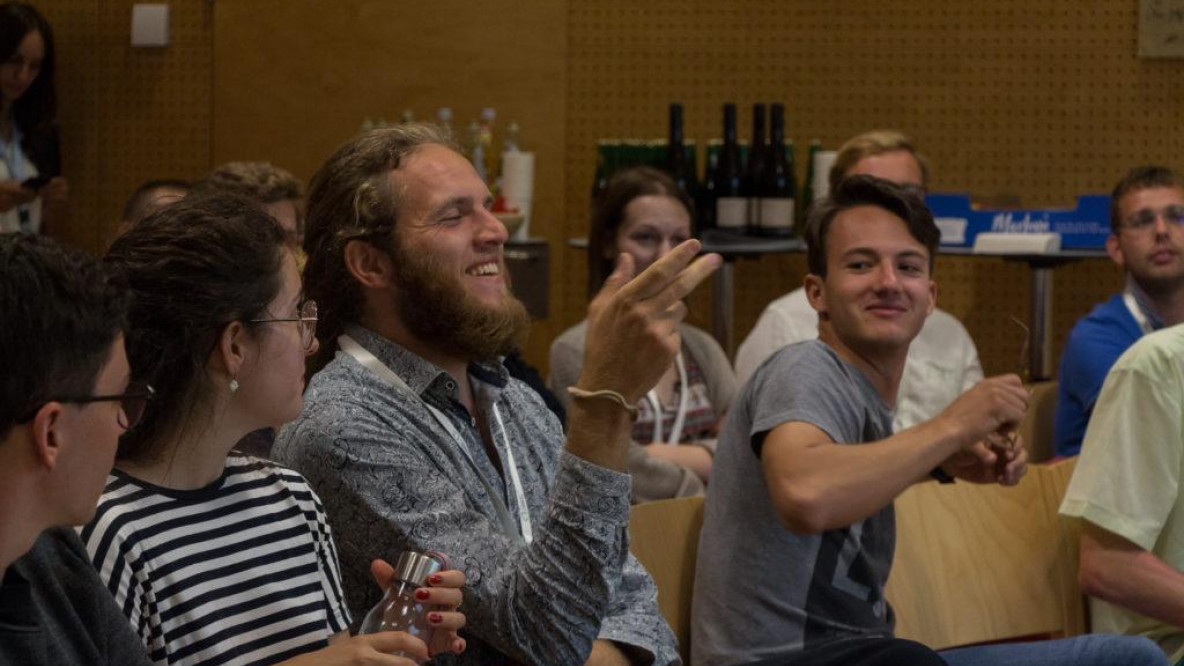Intellectual Self-Defense

Today is my 9th day at the European Forum Alpbach. So far, I have engaged in conversations with interesting people from all over the world, I have stepped out of my comfort zone in a multitude of ways and I have had a lot less sleep than I do when I am on a regular schedule.
A major part of the Forum Alpbach is the seminar week. It is composed of intellectual seminars in the mornings and practical seminars in the afternoon.
For the morning seminar I opted for “Intellectual Self-Defense”. Why so? I have a bit of a weakness when it comes to discussion: I consider myself as impulsive in some situations, not considerate enough of the other person in others, and maybe sometimes even a bit gullible or easily manipulable. The seminar was held by the author and recipient of numerous literary awards Ilija Trojanow.
Being comfortable is not a good thing, because it does not lead to growth.
Even though shortcuts only lead to devaluation, I had to narrow down the content of the seminar in order that you, as a reader, can improve your own intellectual self-defense. These tips were given by the author and some insights came up during the discussion. I divided them into three categories.
When writing or discussing, never use “we” in an argument, when you don’t really know who you are referring to. There is seldom a homogenous “we”. What is more, challenging the detail instead of the structure of the opponent’s argument can be of advantage. Be curious, ask questions and listen. Try not to get carried away emotionally. Indignation will only narrow your potential. Instead, try humor, a rhetoric approach or light-heartedness.
When reading articles, some very alarming signals of untrustworthiness are: only one view is portrayed, the text is full of mistakes, one example appears to represent the whole reality, the text offers simple solutions for complex problems and/or it is directed to your emotions. To counter this, one should read multiple articles about the topic and exchange ideas with other people. Even if you might not agree with what the article says, remember that “when you read something it is not about what you read, but rather about how you read it”.
Generally speaking, in order to evolve one’s own intellectual self-defense, one should not try to stick to what is convenient. Venture out in the world. Have conversations with people that do not think the same way as you. Being comfortable is not a good thing, because it does not lead to growth. Get lost. Think utopian but settle for compromise. And finally: speak up about what you have learned on your journey.
Now my 9th day at the European Forum Alpbach is coming to an end. I wish for my second week in Alpbach to be just as challenging and insightful at it has been thus far. I hope to engage in a lot of conversations, the more uncomfortable the better, so that I can apply what I have just learned. When I pack my things, I am sure that I will not only be taking home dirty clothes but also kilos of new knowledge, tons of experience and a smile on my face.
Das klingt ja fast wie eine
Das klingt ja fast wie eine Reha, für jene die über Jahre mit trigger warnings, safe spaces und Schutz vor micro aggressions vor jeder minimalen Zumutung geschützt wurden.
Doch wie Nietzsche schon sagte:
Wer sich stets viel geschont hat, der kränkelt zuletzt an seiner vielen Schonung.
Also hoffen wir es, dass es für diese Glashaus- und Retortengewächse nicht zu spät ist und sich vom kritischen Außeinandersetzungen nicht gleich wieder zurückziehen und (wieder) zu PCs und SJWs verkümmern.